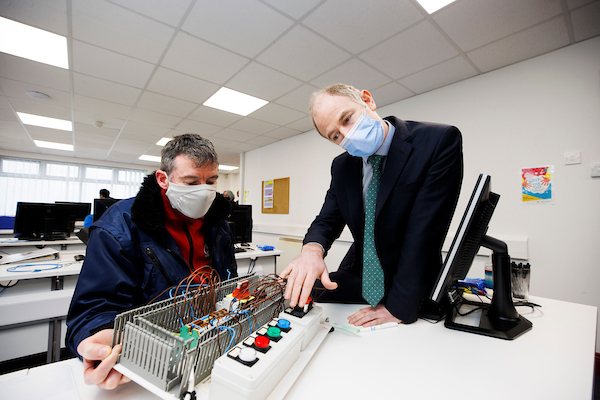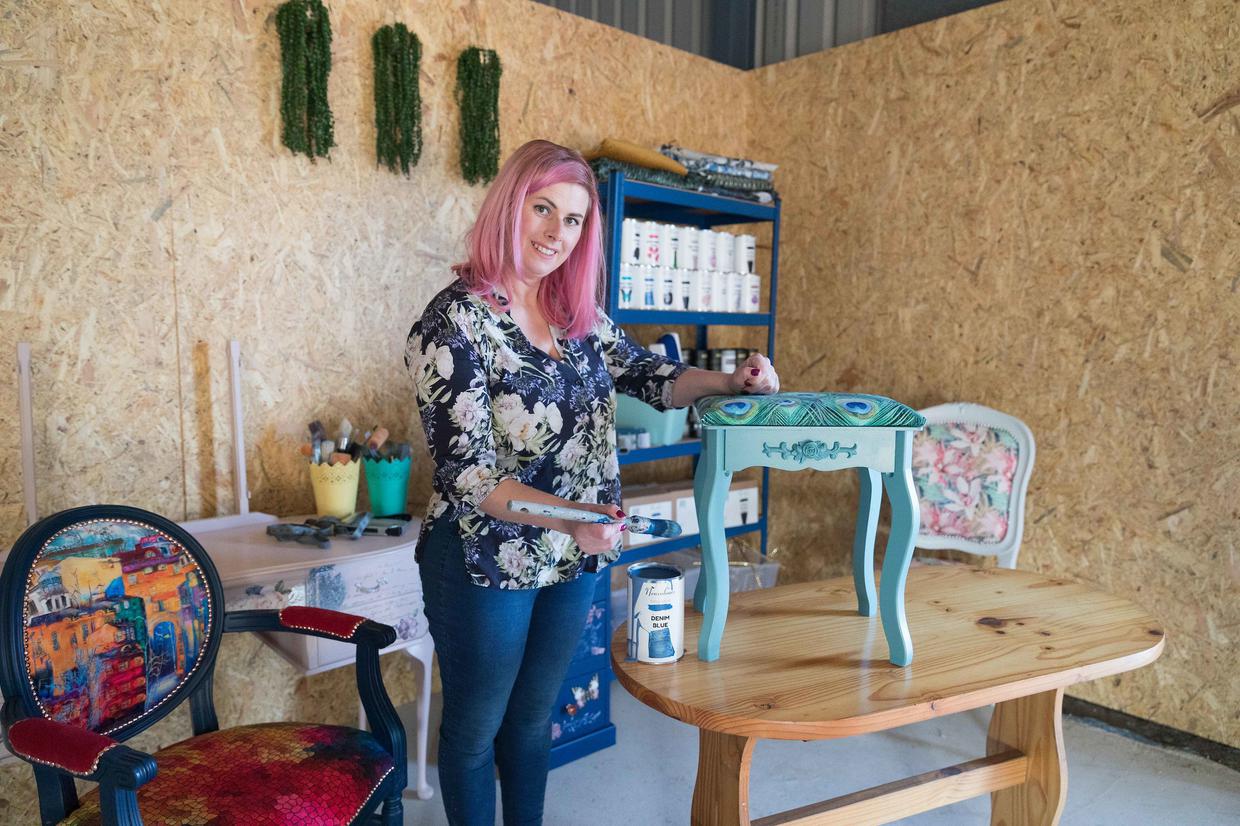Students of a unique training course for repair technicians received the Ministerial seal of approval on Tuesday (Jan 25) when Junior Minister Ossian Smyth visited their training centre in Co Meath.
He was a guest at the FIT (Fastrack to Information Technology) centre in Dunshaughlin to meet participants enrolled in the first Irish course of its kind in a decade.
Minister of State Smyth, who has responsibility for the Circular Economy, paid tribute to the various groups behind the Circular Economy Skills Initiative, which is training a new generation of repair engineers.
It aims to combat a major national shortage in white goods repair technicians, producing enough qualified experts to extend the lives of fixable electrical appliances such as washing machines, dishwashers and dryers.
“This is a great new initiative and will be instrumental in making the circular economy real for consumers and industry alike. Having qualified technicians available to undertake quality repairs gives confidence to users that repaired goods can be trusted and are great value. I wish this first cohort of trainees well in what promises to be a very rewarding career,” said Minister Smyth.
The course began in November thanks to an initiative between the White Goods Association (WGA), WEEE Ireland and technical training agency FIT, supported by Louth and Meath Education and Training Board (LMETB) and the CIRCULÉIRE Innovation Fund – Ireland’s first industry-led innovation network dedicated to accelerating the circular economy.
“We are delighted to work with WEEE Ireland, who have been instrumental in helping launch this course,” said Ian Collins, chairman of the White Goods Association (WGA).
“Education, training and upskilling are key to supporting more circular actions related to the supply of electrical goods and services. With a new generation of skilled repair engineers, we can ensure perfectly repairable electrical appliances are kept in use for longer.
“Tapping into the new repair and reuse culture and inspiring the next generations of consumers is a huge part of what we are aiming to achieve.”
Leo Donovan, CEO of WEEE Ireland, described the programme as “a great example of multi-stakeholder engagement working together to solve part of the e-waste challenge”.
“Qualified repair technicians are vital to ensuring more reuse, repair and refurbishment of white goods in Ireland to extend their life-cycle – in turn minimising waste and saving resources,” he said.
“WEEE Ireland and the WGA are proactive in meeting the challenges of the circular economy and engaging with the industry to support sectoral development of important initiatives.
“It is a hugely positive course for several reasons: appliances will be repaired properly, it will give us a skilled workforce into the future, it is an industry-led project and participants will learn about Ireland’s e-waste challenge, the WEEE system and Circular Economy theory.”
Martin G O’Brien, Chief Executive of Louth and Meath Education and Training Board, said the board is “delighted to partner with a vibrant collective of industry stakeholders in implementing industry-led, targeted Circular Economy initiatives in the Louth and Meath region”.
Peter Davitt, FIT CEO, explained that the course runs over 26 weeks, followed by 12 weeks’ guaranteed work placement with leading white goods industry supporters of the programme.
It is free of charge for trainees, supported by a grant from the CIRCULÉIRE Innovation Fund, a publicly funded circular economy initiative.
The CESI Innovation Project is supported by Producers of key brands including Beko, Belling, Blomberg, Bosch, Candy, Haier, Hoover, Electrolux, Fisher & Paykel, Flavel, Grundig, Hotpoint, Leisure, Indesit, Miele, Neff, NordMende, Servis, Siemens and Whirlpool.
Last month, Minister Smyth launched Ireland’s first Whole of Government Circular Economy Strategy, which sets out a vision for Ireland’s transition to circularity; explaining the concept of the circular economy, describing what initiatives are already happening, what opportunities are available and how Government will drive the changes required.
Most recent
14 Feb 2023
Turn Red Hearts Green this Valentine’s Day
3 Feb 2023


